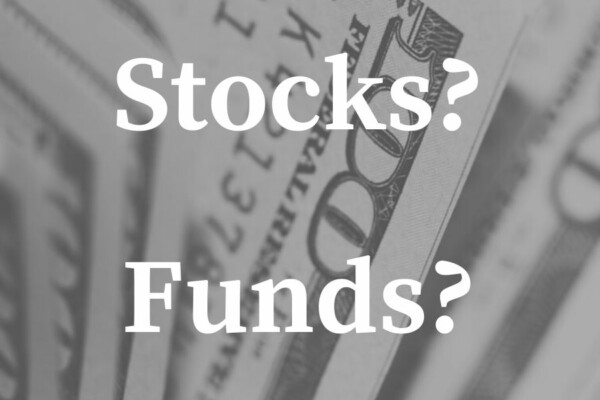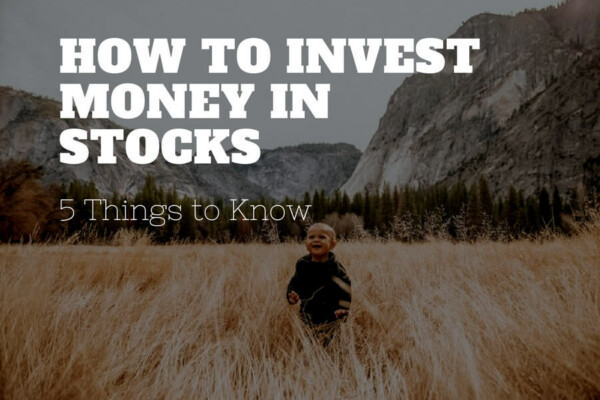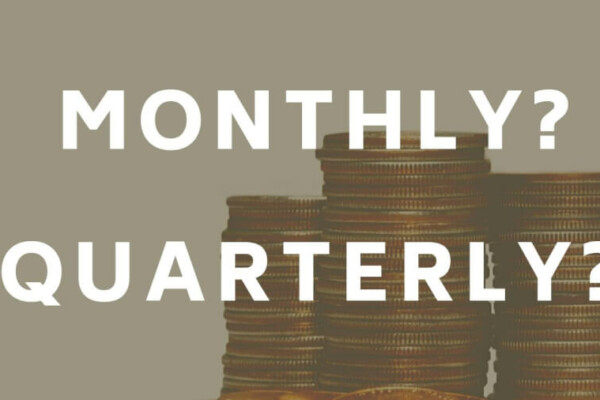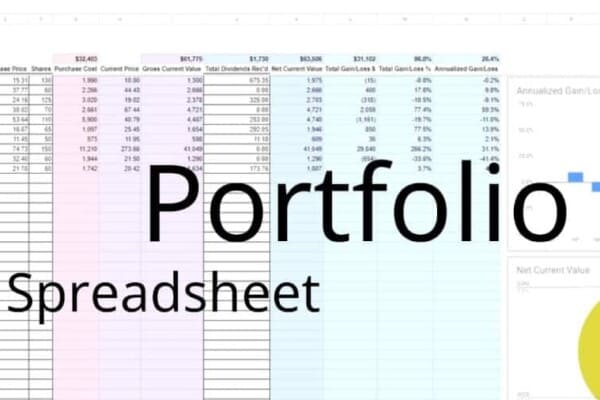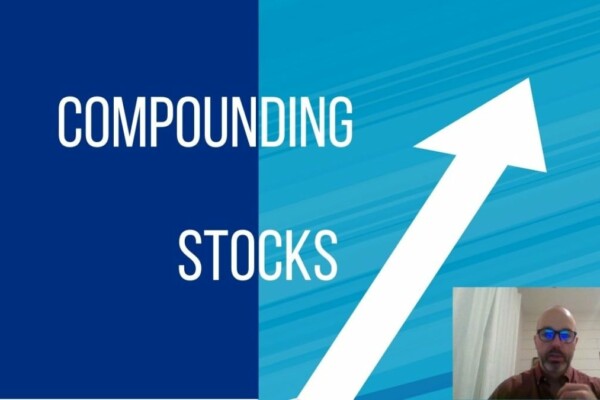When you buy a stock your money ultimately goes to the seller through an intermediary (who takes its share). The seller might be the company itself but is more likely another investor.
When you are new to investing. you might have a lot of questions. It is important for you to understand the market as a whole. Also, to have a good grasp of the mechanics involved in the purchase and sale of stock.
It is not uncommon for investors to not know what happens after you buy a stock. Hopefully, this post will answer some of those questions for you and give you a better idea of what goes on “behind the scenes” when you buy stocks.
Want to learn more about how people get wealthy investing in stocks? Read this post:
CAN YOU GET RICH BY BUYING STOCKS? – THE IMPORTANCE OF HOLDING LONG-TERM
What are stocks?
Let’s start at the very beginning. To put it very simply, stocks are a way for ordinary people to invest in some of the largest and successful companies in the world. Many investors choose to put their money in stocks, as it is a great way to build wealth. Indeed, one of the main reasons so many investors own stocks is because of the opportunity to earn a good return on investment.
When you own a stock, you essentially own a little piece of that company. If you purchase that stock as part of a company’s IPO, then that money goes indirectly (via an investment bank) to the company.
Indeed, for companies, issuing stocks is a good way to raise capital in order to fund growth, new products, innovation, and other initiatives.
Overwhelmed? Want to narrow your search for stocks? Read this post:
4 TYPES OF STOCKS FOR DIVERSIFYING YOUR PORTFOLIO
Why should you own stocks?
As mentioned above, buying the stock of a company means buying some ownership in that company. Stocks, in general, tend to offer a good return on investment, especially over the long term. The average annual return when investing in stocks is around 10%. Keep in mind that when considering inflation, this average will fall to 8%.
It might not be wise not to buy stock in just one company. A more sound strategy is to build a diversified portfolio that includes stocks in many companies across different industries and geographies. This is because not every stock has the same volatility and overall return.
Regardless of the type of company that you decide to invest in, or the specific industry, returns on a stock usually come in one of the following ways:
The price of the stock appreciates, meaning that its value goes up. Selling the stock for more than you paid for it locks in a profit.
The stock pays dividends. Keep in mind that not all stocks pay a dividend. Those that do usually pay monthly, quarterly, semi-annually, or annually. Dividends are payments made to shareholders from the company’s profit.
Curious about “shorting” stocks? Read this post:
DOES SHORTING A STOCK DRIVE THE PRICE LOWER?
When I buy a stock where does the money go?
Now that you have a better idea about what a stock is and why you should own them, we can look deeper into where your money goes once you decide to invest in a stock.
Generally, companies decide to sell shares in their business as a way to raise money. Money that they then invest in different activities or initiatives. For instance, a company can use the money raised from a stock offering to fund new products or product lines. They might also use the money to expand capacity or to spend on marketing.
When companies first issue shares, they do so via an IPO (the abbreviation for Initial Public Offering). Once the shares of stock are available on the market, investors can buy or sell them.
After shares have been issued they trade between buyers and sellers on an exchange. This is known as the secondary market. When you buy stock on the secondary market – your money goes to another investor who is selling their shares.
Of course, when the time comes for you to sell your shares, you’ll receive cash from a buyer. Via the intermediary – your broker.
What happens to my money when the value of a stock drops?
It might help to use an overly simplistic example.
Imagine there are only two people in the world who want to trade stocks – you and another person.
Let’s say you bought a stock from them for $15 (they shorted it). Over time, the value dropped and you sold it back to them for $10. You have lost $5 in the transaction. Conversely, the other person made $5.
Now the real stock market is vastly more complicated. There are many other participants and many other stocks. People also have many different cost basis’.
The stock market isn’t necessarily a “zero-sum game” like derivatives are. Many stocks are purchased (and sold) on the assumption that there will, someday, be another party that will pay more (or less for it). And, since there’s no expiration date for the stock market, that assumption works.
But people are always on the winning or losing side of a trade – to a greater or lesser degree. So, the (overly simplistic) answer to the question “what happens to my money when the value of a stock drops” is that the individual who sold you the stock has it.
What does owning a stock involve?
The majority of investors invest their money in what is referred to as common stock. Common stock comes with voting rights and tends to include dividends as well.
Other types of stocks, such as preferred stock work differently. Keep in mind that owning a stock essentially means owning a share in the company’s profits (or, when applicable, a company’s losses). That means that you won’t have a voice in managerial decisions nor that you’ll be entitled to a desk at the company’s headquarters.
Stocks, while having a good reputation and history of providing their investors with high returns, do come with some risk. Your goal when owning a stock is for the value of the company (and consequently) of the stock to go up for as long as you own such stocks. However, one of your stocks may go down in value, as stock prices tend to fluctuate due to the overall market volatility. Or, perhaps, due to events or accidents specific to the company you invested in. That’s why you will need to pay a lot of attention to the movements of the market and the company’s activity. As even small events such as a product recall or a crisis in communication might affect the value of the stock of a company.
In general, the majority of long-term investors decide to hold on to the stocks they invested in for several years. That usually results in the overall value of the portfolio to go up over time. Long-term investors can also, indirectly, own stocks through mutual funds. Mutual funds offer pool investment funds together and offer a degree of diversification.
Buying and owning stocks that rise and fall
As you can see, the stock market is not always as straightforward as you might think. To be successful in trading stocks, you need to be up-to-date on the market’s conditions and specific companies’ strategies. This will help you to make savvy decisions and to get higher returns on your investments.




